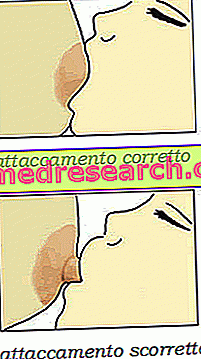Related articles: Meningitis
Definition
Meningitis is the inflammation of the fluid (cerebrospinal fluid) and of the membranes surrounding the brain and spinal cord, due to the spread of a viral or bacterial infection (pneumonia, tuberculosis). The viral form is much more common and virulent than the bacterial form. In relation to the causes of origin, meningitis can be resolved positively within a few days or become a real emergency that jeopardizes the very survival of the patient.Most common symptoms and signs *
- Tinnitus
- Tinnitus
- Changes in the menstrual cycle
- anisocoria
- Apathy
- Asthenia
- Increase in the ESR
- Bacteremia
- Chills
- Coma
- Convulsions
- Febrile convulsions
- Seizures
- Dementia
- Learning difficulties
- Temporal and spatial disorientation
- Neck pain
- Articolar pains
- Muscle pains
- Brain edema
- Papilla edema
- hemianopia
- Temperature
- phonophobia
- Fotofobia
- Hydrocephalus
- Hyperalgesia
- Hyperesthesia
- Intracranial hypertension
- Lethargy
- Headache
- Nausea
- Misaligned eyes
- Pallor
- Stiffness in the muscles of the back and neck
- Mental delay
- Cold sensation
- Nephritic syndrome
- Drowsiness
- Confusional state
- Cough
- lockjaw
- He retched
Further indications
The initial symptoms of meningitis can easily be confused with those of a common flu. Immediately consult your doctor if symptoms appear in any way related to a serious infectious process, such as pain in the legs, obvious pallor, feeling of intense cold in the hands and feet. In children, meningitis should be suspected in the presence of symptoms such as prolonged crying, excessive drowsiness or irritability, poor nutrition, stiffness of the trunk and limbs, and swelling of the fountains. In adults, a particularly violent headache is the most common symptom of meningitis, followed by nuchal rigidity (difficulty in flexing the head forward) and high fever.



